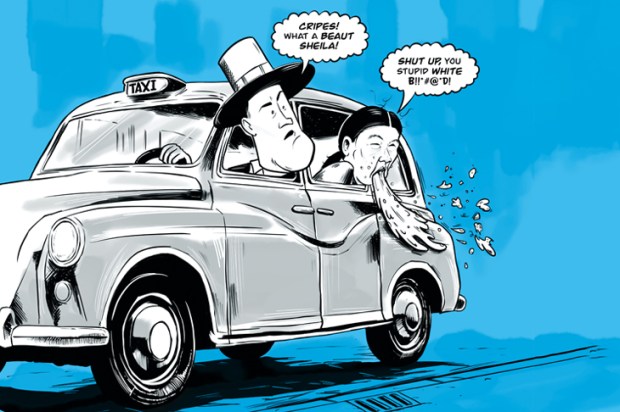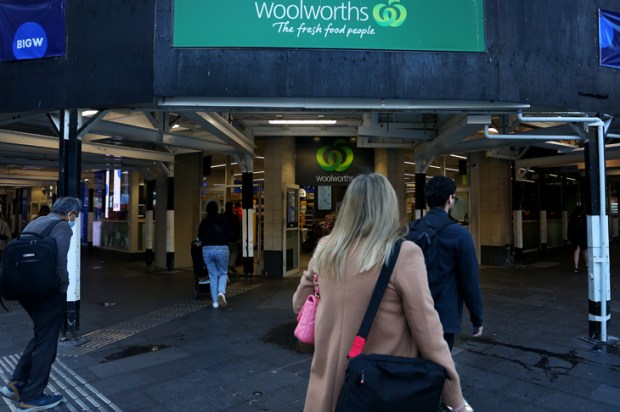As we go to print the US election hangs in the balance. Both candidates have made late night speeches; one designed to ‘pause’ the expectations of his supporters and the other to set up the narrative ‘we wuz robbed’. In the case of the Joe Biden speech, a cynic might believe that its secondary purpose was to ramp up the expectations of his more – how shall we put it? – ‘passionate’ supporters (aka Antifa and Black Lives Matter) so that the let-down will be that much greater if/when Donald Trump does indeed win, thus paving the way for another four years of violent opposition to Republican rule. The reality, rarely admitted, is that the reason shopkeepers and businesses are busy boarding up their shopfronts and police are lining the streets is fear of the Left’s reaction, not the Right’s, to the result. In that sense, Mr Biden’s ‘we are on track to win’ was irresponsible.
Cannot the same be said of Donald Trump’s ‘frankly we did win’ comment? Not really. On the main, Trump supporters are best known for their passionate support of their leader, turning up in record numbers to rallies much as fans turn up to rock concerts, as opposed to threatening physical violence against their opponents. On the Left, howeever, effigies of the president have been burned by protesters, comedians have posted pictures of themselves decapitating Mr Trump and mock-Trumps have been guillotined at BLM marches.
Following President Trump’s 2016 victory, an outpouring of unmatched hysterical reactions were common, with distraught Millennial women collapsing to the ground and screeching as if in the throes of an agonising childbirth. And indeed, they were, and their ugly offspring became best known by its initials TDS. TDS is of course Trump Derangement Syndrome, and it has grown in ferocity and anger over the subsequent four years.
In fact, regardless of who wins and loses, TDS is the defining issue of this sorry campaign. Offering literally nothing in terms of a positive policy platform (the ‘yes-we-will, no-we-won’t trillion dollar ‘Green New Deal cannot be seriously considered as policy) Joe Biden hoped to win office solely on a mixture of anger, hatred, fear and despair; hardly a positive platform with which to galvanise or inspire wavering voters.
Indeed, the final Biden campaign slogan claiming this election is a fight for ‘the soul of the nation’ showed just how much focus groups and polling gurus had failed to find anything about Biden-Harris that appealed to voters other than visceral dislike of Trump the man.
In this week’s issue Kel Richards discusses the difference between populism and democracy. Following the 2016 win, Mr Trump was widely derided as a ‘populist’; the suggestion being that the fact that people liked his ideas and policies where the ‘bien pensants’ of the media and academia clearly did not, was somehow of concern.
Yet the rallies were clear evidence that populism is a key aspect of political success. Firstly, because we humans are best motivated by positive emotions. Certainly where there is no legal compulsion to trek out into the cold to vote. On top of the enthusiasm and energy generated by the rallies, they provided a great data trove of millions of online contact details for the Trump campaign to motivate to spread its message. Intriguingly, as one commentator wrote, ’45 per cent of the attendees at an October New Hampshire rally were not registered Republicans and 20 per cent did not vote in 2016. Who would wait in line for hours to see a Trump rally in October and then not vote for Trump in November?’
There are already many lessons to learn from the 2020 election. The big story will most likely be the extraordinary shift in voting demographics, with many Latinos seeing echoes of the communist regimes they had escaped in the Democrats’ manifesto. Similarly, and pushed by the #WalkAway and #Blexit movements, there appears to have been a not insignificant shift in the African American vote, particularly amongst working men. Hardly a surprise given the fact that (prior to Covid) Mr Trump had achieved for African Americans and other minority groups the lowest unemployment figures they have ever known.
For many, the election was a tragic contest between two inferior candidates. But this ignores the question of policies. Voters aren’t stupid, and those not on the public purse are more acutely aware of how their livelihood and the prosperity of their family depends directly on the economic circumstances created by a president’s priorities. On this issue, the Democrats shamefully abandoned the economic field, promising a half-baked indigestible stew of climate change neo-Marxist green promises and an abandonment of American industry.
In terms of policy if nothing else, a (likely) Trump victory is one to be welcomed.
Got something to add? Join the discussion and comment below.
Get 10 issues for just $10
Subscribe to The Spectator Australia today for the next 10 magazine issues, plus full online access, for just $10.
You might disagree with half of it, but you’ll enjoy reading all of it. Try your first month for free, then just $2 a week for the remainder of your first year.















Comments
Don't miss out
Join the conversation with other Spectator Australia readers. Subscribe to leave a comment.
SUBSCRIBEAlready a subscriber? Log in